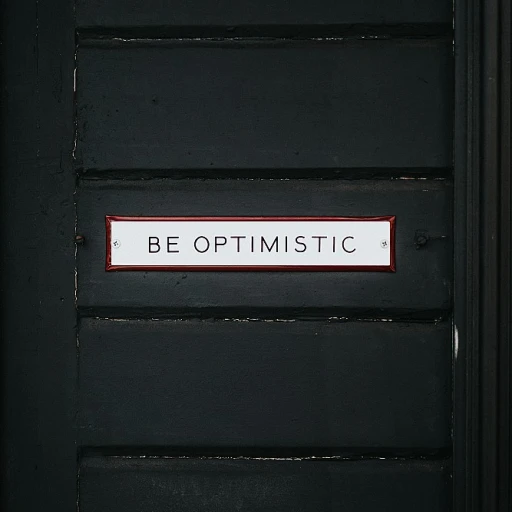
Understanding Your Organizational Strengths
Recognizing Your Unique Skills in Organization
Understanding your organizational strengths is pivotal when embarking on a career transition. It goes beyond simply knowing you are a highly organized individual; it involves recognizing the specific skills that make you exceptional in managing tasks and time. This preliminary step will serve as a foundation for exploring careers where these skills are particularly valued.
Individuals who excel in organizing often possess a unique combination of traits such as attention to detail, effective time management, and the ability to streamline processes. These skills are indispensable in various roles, ranging from project management to community organizing. By clearly identifying these attributes, you increase your value in the professional world, making it easier to transition into roles that require strategic planning and precision.
One crucial aspect is acknowledging the diverse ways in which organizational skills manifest. Whether it's through orchestrating seamless event planning or maintaining efficient supply chain management, your proficiency in organizing is a sought-after asset in numerous industries. For instance, data entry or roles as a professional organizer demand impeccable organizational skills to maintain accuracy and efficiency.
Interpret your organizational flair as a blend of learned techniques and innate abilities. The ability to focus on details while overseeing larger tasks is a valued skill in professions that require both strategic thinking and tactical execution. To further develop and harness these skills, you might consider delving into resources that emphasize process improvement consulting for additional insights and strategies to enhance your career journey.
Identifying Suitable Career Options
Exploring Career Opportunities for Natural Organizers
As someone with a knack for organization, you possess a unique set of skills that can be leveraged in various professional settings. Identifying the right career path involves understanding how your organizational strengths can be applied in different roles. Here are some career options that might align with your talents:
- Project Manager: Your ability to manage time and resources effectively makes you an ideal candidate for project management roles. These positions require a high level of organization to ensure projects are completed on time and within budget.
- Event Planner: If you enjoy coordinating details and ensuring everything runs smoothly, a career in event planning might be a perfect fit. This role demands strong organizational skills and attention to detail.
- Professional Organizer: Helping others declutter and organize their spaces can be both rewarding and lucrative. As a professional organizer, you can offer services to individuals and businesses looking to improve their organization.
- Supply Chain Manager: In this role, your organizational skills will be crucial in managing the flow of goods and services. It involves coordinating with various stakeholders to ensure efficient operations.
- Data Entry Specialist: For those who love working with data, this job requires precision and organization to maintain accurate records.
- Travel Agent: Organizing travel itineraries and ensuring clients have a seamless experience can be a fulfilling career for those who enjoy planning and logistics.
- Community Organizer: If you have a passion for helping others and making a difference, community organizing allows you to use your skills to bring people together for a common cause.
These roles not only capitalize on your organizational skills but also offer opportunities for growth and development. To learn more about crafting your unique career path, consider exploring resources on navigating career transitions.
Navigating the Transition Process
Charting Your Course With Tactical Steps
Transitioning into a new career that capitalizes on your organizational strengths requires a thoughtful approach. It’s not just about finding the right job—it's about making a strategic plan to ensure success. Here’s a roadmap to guide you through the process.- Research and Introspection: Dive deep into the kinds of roles that fit your organizational skills. Jobs such as a project manager, real estate agent, or professional organizer are ideal for highly organized individuals. Delve into what makes these roles appealing and which align with your career vision.
- Evaluate Financial and Educational Requirements: Different roles have varying demands in terms of certifications or degrees. For example, roles like project management may require specific qualifications beyond a high school diploma. Assess the financial implications and time commitment necessary to gain these qualifications.
- Develop Relevant Experience: If you're pivoting to roles like an event planner or travel agent, building a portfolio of related work can be crucial. Look for opportunities in community organizing or data entry jobs that let you utilize and hone your organizational skills.
- Strategize Your Job Search: Tailor your resume and cover letter to showcase your organizational expertise, focusing on achievements that demonstrate your time management abilities and attention to detail. Consider leveraging platforms that connect you with recruiters specializing in organizational roles.
Building a Strong Professional Network
Building Connections That Matter
Fostering a strong professional network is a crucial step for natural organizers looking to transition into new career paths. By leveraging your organizational skills, you can create and maintain valuable relationships that will support your career aspirations. Organizers excel at keeping track of details and managing schedules, which can be incredibly beneficial when networking. Here are some strategies to consider:- Join Professional Groups: Engaging with industry-specific associations can provide insights into career opportunities and introduce you to like-minded professionals. For instance, professional organizers can benefit from joining national or local organizing associations.
- Attend Networking Events: Whether it's a business seminar, a community organizing workshop, or a real estate conference, attending events allows face-to-face interaction. It’s an opportunity to showcase your organization skills and meet potential employers or collaborators.
- Utilize Online Platforms: Platforms like LinkedIn are instrumental for connecting with professionals in various fields. Regularly updating your profile to reflect your skills and experience in management or project coordination can attract interest from companies seeking highly organized individuals.
- Seek Out Mentors: A mentor with experience in fields like data entry, project management, or supply chain can provide valuable career guidance. Learning from someone who has navigated career transitions successfully can offer insights and encouragement.
Time To Organize Your Efforts
As a natural organizer, you already possess an innate ability to prioritize and manage time. These skills are essential when building and maintaining a professional network, as consistent follow-up and engagement are key to nurturing relationships. Incorporate time management strategies to stay organized. Set aside dedicated time each week for networking activities, whether it’s reaching out to new contacts or organizing meet-ups with current connections. Tools such as digital planners can help you keep track of appointments and commitments. Remember, the best jobs often come through referrals or connections. By systematically organizing your efforts towards building a robust network, you’ll open doors to new opportunities, whether you're exploring work as an event planner, travel agent, or in another dynamic role where your skills as an organizer can shine.Overcoming Common Challenges
Strategies to Tackle Common Obstacles in Career Transitions
Transitioning to a new career path can bring about numerous challenges, particularly for those who thrive on organization. Yet, with the right approach and mindset, these obstacles can become manageable steps toward achieving your career goals. Below are several strategies to help you overcome the common hurdles faced during career transitions.- Adapting to New Roles: Entering a different field often means mastering new tasks that might initially feel overwhelming. Jobs like project manager or event planner demand a different use of organizational skills, which can be honed through experience and practice. Start by embracing opportunities for hands-on learning and gradually build your competence and confidence in the new role.
- Lack of Experience: One significant concern for career changers is the perception of insufficient experience. By leveraging transferrable organizational skills and highlighting them in your resume, you can showcase your value to potential employers. For instance, if you're moving into data entry or supply chain management, stress your attention to detail and effective time management.
- Financial Implications: Economic factors can pose a significant barrier during transitions. Planning and budgeting are crucial. If you've worked as a professional organizer or in community organizing, you likely understand the importance of financial prudence. Consider taking temporary or part-time jobs to ease the financial burden as you navigate toward your new career.
- Building New Relationships: In transition, the absence of an established professional network can be daunting. Nevertheless, active community involvement, such as participating in business networking events or seeking mentorship, can widen your professional circle. As you connect with people who have shared interests, you'll find more opportunities opening up.
- Mindset Shift: Shifting away from a fixed mindset to one of growth is essential. Cultivating a mentality focused on learning and resilience will empower you to face challenges head-on. Highly organized individuals who apply a growth mindset adapt more swiftly as they pivot into new career directions.
Continuous Learning and Development
Commit to Ongoing Growth and Learning
Transitioning careers as a natural organizer involves embracing continuous learning and development. Recognizing your organizational strengths and aligning them with suitable career options can pave the way for further growth.
To stay relevant in your chosen field, it’s crucial to continuously enhance your organizational skills. This can be achieved by keeping abreast of the latest trends in management services, data entry, supply chain, and business processes. Professional organizers and project managers often benefit from specialized workshops and certification programs focused on improving time management and attention to detail.
Consider enrolling in online courses or attending webinars that focus on specific aspects of careers for highly organized individuals. Options include real estate seminars, community organizing workshops, or even event planning courses. Investing time in learning not only strengthens your organizational skills but also broadens your understanding of industry-specific challenges and opportunities.
Engage with communities of like-minded people. Networking with other organizers provides invaluable insights and encourages sharing best practices. Additionally, participate in forums and groups where jobs people love are the central topic of discussion. Platforms such as LinkedIn offer resources and connections that can be useful in sustaining career growth.
Remember, developing your career is a journey. Stay curious, and leverage your passion for being organized to propel yourself forward. With strategic learning and a commitment to professional growth, you’ll find the journey fulfilling and rewarding.













